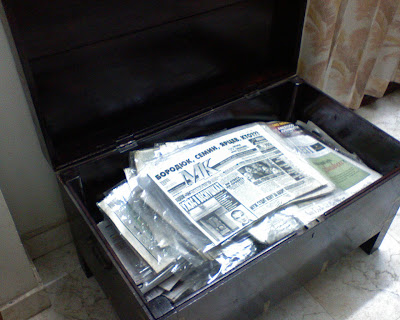Dec 30th 2008 | JERUSALEM
From The Economist print edition
If the Israeli onslaught on the Islamists of Hamas silences them for a while, it could alter the odds in Israel’s coming general election
“BY THE time we’re finished,” Israel’s deputy chief of staff, General Dan Harel, told a group of mayors from towns close to the Gaza Strip on December 29th, “there won’t be a Hamas building left standing in Gaza.” They could well believe him. In four days of bombing that began with a massive, sudden raid on December 27th, Israeli jets, unmanned drones and helicopters killed some 350 Palestinians, smashing offices belonging to Hamas, the Islamist movement that has run the strip since booting out its secular Fatah rivals a year-and-a-half ago, as well as police stations, ministry buildings, Gaza’s Islamic university, refugee camps and workshops. In a raid by 40 aircraft on December 28th, dozens of arms-smuggling tunnels under the border with Egypt were destroyed.
The onslaught is meant to stop Hamas firing rockets at Israel. But the general predicted that “the worst is still ahead”. UN agencies said between 50 and 90 of 300-plus killed in the first three days were non-combatants. If tanks and artillery enter the fray, civilian deaths may mount faster. In the past year, before the latest onslaught, 420-plus Gazans had been killed in Israeli raids, at least a fifth civilian, according to B’Tselem, an Israeli human-rights lobby.
In the first four days of “Operation Cast Lead”, four Israelis (including one soldier) were killed by Palestinian rockets, bringing the total number of Israeli civilian deaths at Hamas’s hands in 2008 to five. Three of the victims were struck down in the towns of Netivot, 12km (seven miles) east of Gaza, Ashkelon, 11km up the coast, and Ashdod, a port, 30km north of the strip. Villages even farther away were hit.
Israel’s defence minister, Ehud Barak, said the operation had been planned for months, long before a shaky six-month ceasefire with Hamas ran out on December 19th. Intelligence sources identified scores of Hamas targets in the densely populated territory, where 1.5m Palestinians, more than half of them refugees or their descendants, have been hemmed into the sandy coastal strip some 40km long.
Stopping or drastically reducing Palestinian rocket fire will be the political touchstone of this military campaign, as it was in the month-long war between Israel and Hizbullah, Lebanon’s well-armed Shia movement, in the summer of 2006. At that time, Ehud Olmert, Israel’s prime minister, who is to step down after an election on February 10th, had hoped that air raids would silence the missile launchers. Three weeks later, with a third of Israel virtually at a standstill because Hizbullah’s missiles are far more lethal than Hamas’s mostly home-made projectiles, a massive Israeli ground force was finally sent in but got bogged down against Hizbullah’s dogged fighters. An eventual ceasefire left Hizbullah claiming victory and Israel’s generals and politicians locked in recrimination.
“After Lebanon,” says Tzachi Hanegbi, chairman of the foreign affairs and defence committee of Israel’s parliament, “everyone understands that rocket fire can’t be silenced by air power alone.” But everyone understands, too, that Hamas, completely outgunned from the air, seeks to lure Israeli ground troops into the heavily built-up Gaza Strip to engage them with street-fighting guerrillas. Hamas, too, has been preparing long and hard for this showdown.
As in all its wars, Israel feels it is fighting against the clock. Its diplomats say they sensed an initial surge of approval, albeit muted, from many world capitals and even among moderate Arab governments. George Bush’s administration has been plainly in Israel’s corner. But the high death toll and the prospect of a lot more killing if the operation is “broadened and deepened”, to use Mr Barak’s words, could spur European governments to pay more heed to protests mounting in the Arab world.
Israel says it intends its armed incursions, if they come, to be brief and not to drag it into a renewed occupation of the strip. If the Hamas regime collapses under the onslaught, so much the better, though there is no certainty that the Fatah-led Palestinian Authority, forcibly ousted from Gaza by Hamas in June 2007 but still in charge in the Palestinians’ bigger West Bank, would be able to return to power.
If Hamas does stop firing rockets, Mr Barak’s standing could rise fast. Mr Olmert is formally still in charge until a new government is formed after the election. But the Gaza operation is widely seen as Mr Barak’s. He and his Labour party have been trailing well behind the foreign minister, Tzipi Livni, and her Kadima party and Binyamin Netanyahu and his hard-right opposition Likud party. In desperation, before the onslaught, Mr Barak had mounted a campaign on billboards and on the internet, declaring himself “not nice”, “not cuddly” and “not trendy”. If Hamas’s rockets are silenced, albeit for a while, Israel’s voters may warm to those harsh qualities.










